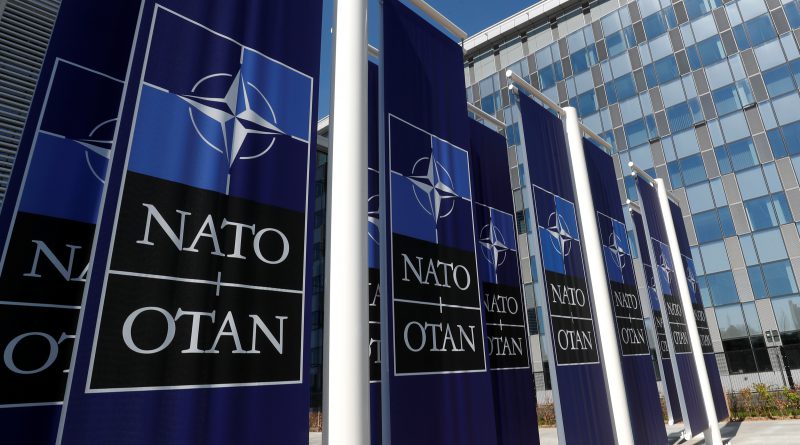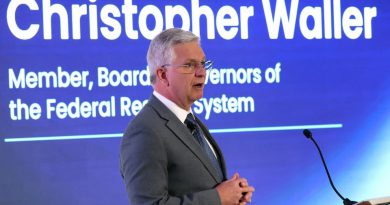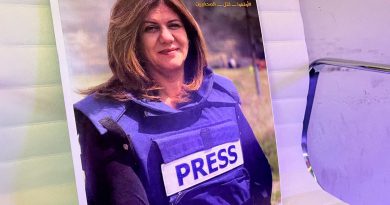NATO’s Mark Rutte affirms alliance’s nuclear strength after successful drills
Berlin – NATO Secretary-General Mark Rutte declares confidence in the alliance’s nuclear deterrent, following successful military exercises that reinforce unity and readiness amid growing Russian threats.
NATO Secretary-General Mark Rutte has reaffirmed the alliance’s strength and unity after the successful completion of its annual nuclear exercise, stating that the drills showcased the credibility and preparedness of NATO’s nuclear deterrence capabilities in the face of rising tensions with Russia.
Speaking to German media, Rutte emphasized that the exercise, conducted earlier this month, demonstrated the alliance’s ability to respond decisively to any form of nuclear intimidation.
“When Russia is using dangerous and reckless nuclear rhetoric, our populations must know that there is no need to panic, because NATO has a strong nuclear deterrent,” he said.
Rutte’s remarks come at a critical time, as Russia continues to issue nuclear threats in connection with its war in Ukraine. The NATO chief sought to reassure citizens across member nations that the alliance remains capable and united in its commitment to collective defense.
“Putin must know that nuclear war can never be won and must never be fought,” Rutte added, echoing a long-standing principle that has underpinned global nuclear stability for decades.
The annual NATO nuclear exercise, known for its strict operational secrecy, brings together multiple member states to test readiness and coordination.
This year’s drills reportedly included simulated flight operations, nuclear strike scenarios, and rapid-response coordination between ground, air, and naval forces.
The exercises are seen as a vital demonstration of the alliance’s defensive posture and its message of deterrence against any nuclear escalation.
Rutte, who took over as NATO Secretary-General earlier this year, has been vocal about strengthening deterrence and reinforcing unity among members.
His leadership comes at a moment when the alliance faces one of its most complex security environments in decades, marked by the ongoing war in Ukraine, cyber threats, and increasing geopolitical competition.
He noted that while NATO does not seek confrontation, it cannot afford complacency. “Our deterrence remains defensive, measured, and responsible,” Rutte said. “But it is also unshakable. Every adversary must understand that NATO will defend every inch of allied territory.”
Russia’s President Vladimir Putin has repeatedly issued nuclear warnings since launching the full-scale invasion of Ukraine in 2022. In October, he declared that Moscow could consider using nuclear weapons if struck by conventional missiles, and that any attack supported by a nuclear power would be treated as a joint assault on Russia. These comments have intensified global concerns about the potential for escalation.
Rutte, however, stressed that NATO remains firmly focused on preventing such a scenario. The alliance’s collective deterrence strategy, he explained, is built not just on nuclear capabilities but also on diplomacy, strategic stability, and transparency among allies. “Our goal is not to provoke conflict but to preserve peace through strength,” he said.
The NATO chief’s confidence follows a broader pattern of reassurance within the alliance. Member nations, including the United States, United Kingdom, and France — all nuclear powers — have reaffirmed their commitments to NATO’s shared defense framework. These exercises serve both as a technical test of readiness and as a political signal of cohesion among allies.
Analysts say Rutte’s strong stance sends a message of stability to both allies and adversaries. It underscores NATO’s capability to deter aggression while maintaining the balance of power that has prevented direct conflict between nuclear states since the Cold War.
As tensions between Russia and the West remain high, the success of NATO’s nuclear drills reinforces a clear message: the alliance is alert, united, and prepared.
For citizens across Europe and North America, Rutte’s words serve as a reminder that deterrence, discipline, and diplomacy remain central to NATO’s mission — ensuring that the shadow of nuclear war stays where it belongs: in history, not in reality.



